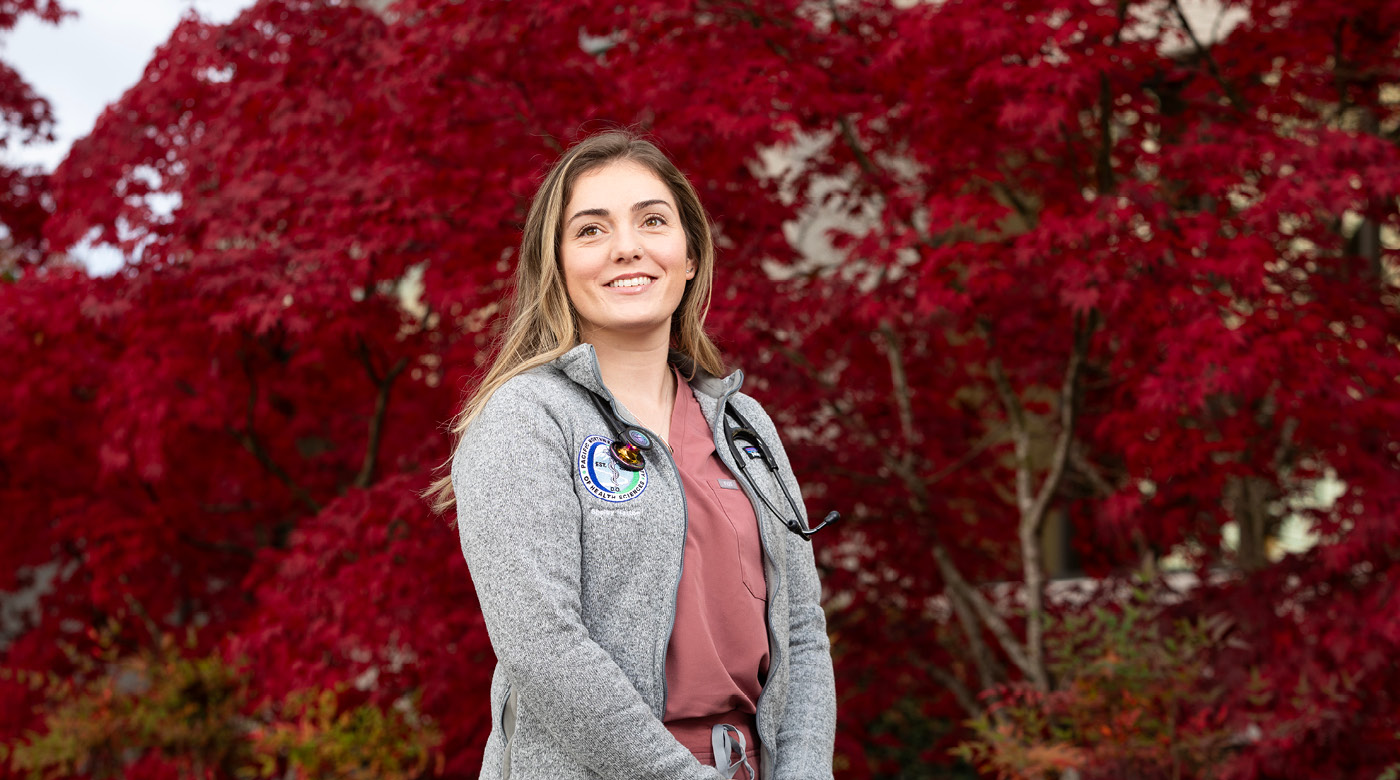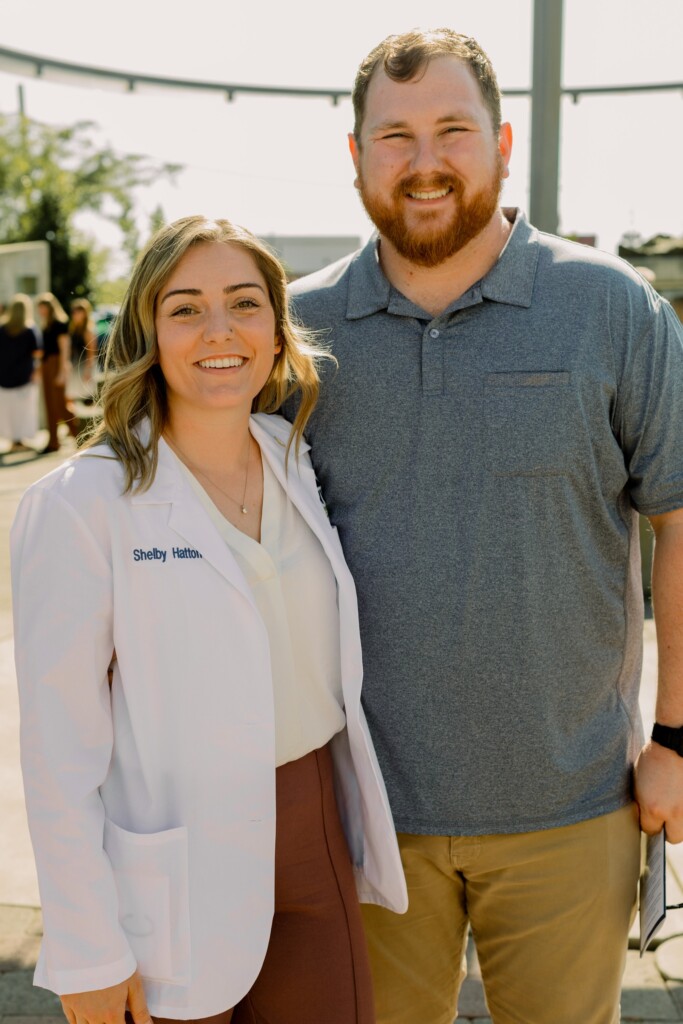PLU alumna Shelby Hatton ’17 discusses her PNWU medical school experience (thus far!)

Image: Image: Shelby Hatton ’17 is a third-year Doctor of Osteopathic Medicine (DO) student at Pacific Northwest University of Health Sciences.
By Zach Powers '10
PLU Marketing & Communications
Shelby Hatton (Murdock) ’17 always knew she wanted to become a doctor, but now that she's in osteopathic medical school she's still deciding on what kind of doctor. The challenge, she says, is that she’s enjoying every aspect of her studies. That’s no surprise, because getting to medical school – and becoming a doctor – has been her lifelong goal.
After double majoring in chemistry and classics at PLU, Hatton spent three years working as a medical scribe and a certified nursing assistant with medically fragile children before beginning her graduate studies. To prepare for medical school, she completed the one-year Master of Arts in Medical Sciences (MAMS) program at Pacific Northwest University of Health Sciences. She’s now a third-year student in PNWU’s Doctor of Osteopathic Medicine (DO) program.
After two years of classes at PNWU’s Yakima campus, Hatton is now back in the Tacoma area doing clinical rotations with a doctor who works at MultiCare Allenmore Hospital, Tacoma General Hospital and St. Joseph Medical Center. She recently met with PLU News to discuss her path into the medical field.
What inspired you to pursue a career in health care?
Going all the way back to elementary school, I was fascinated by the human body. Then I loved all my science courses in middle school and high school. By the time I got to college, pursuing a pre-med pathway felt like the best reflection of my interests. Plus, I’ve always really enjoyed helping people, so it seemed like a natural fit for me.
Like many medical students, you earned a Master of Arts in Medical Sciences (MAMS) degree prior to enrolling in your doctoral program. What was that program like?
It’s only a one-year program. In the beginning of the year you take the same Sci-FOM course – scientific foundations of medicine – as the DO students. You’re in that same class, and that’s just to cover all of the basic biomedical science information to make sure that all of the students are on the same page in terms of the basic science.
Then, in November, when the DO students transition to systems courses, the MAMS students take a set of other courses. This includes classes like biomedical ethics, medical skills and theory, research theory and techniques, and foundations of personalized medicine. These courses are not just designed for medical school, they are designed to fit students interested in a variety of health science fields.
Did the PNWU MAMS program also support your transition to medical school?
It did! For example, faculty members and program alumni help MAMS students throughout the process by reading application essays and helping with interview prep.
The medical school application process is a tough system to navigate on your own. That’s a big reason the MAMS program is a great pathway for students like me who aspire to become first-generation doctors. There is guidance and mentorship built into the program that makes the application and interview process of medical school feel less daunting. I found this support extremely beneficial!
Why did you decide on the DO program at PNWU?
Probably the biggest thing that attracted me to PNWU was the culture fit I could feel during my interview process. It felt very family and community oriented. Everybody I spoke to in the interview process was genuine and kind, and they seemed to really care about me as a person, not just another applicant.
It felt similar to PLU in that way, and I had a really good educational experience at PLU. I enjoyed learning at a small school and I learned that I really thrive in an environment where I have more access to my professors and mentors, because I like to ask lots of questions. PNWU just felt so similar and welcoming, and that definitely stood true during my first two years in the program.
Have you decided what particular medical field or specialty you’d like to focus on?
I love working with kids. All of my prior clinical experience was intentionally focused on kiddos. I did the Big Buddies after school mentorship program through PLU when I was there. That’s why I always thought pediatrics was the direction that I would go. But then, during my first year in medical school, we had a full year of anatomy lab at PNWU, and I absolutely loved that. That made me think I might be interested in surgery. Now that I’m on clinical rotations, I have found myself enjoying everything so far – and my ideas for the future have only been broadened!
It certainly sounds like you were meant to be in health care! How do you think you’ll eventually decide on what kind of doctor you want to be?

That’s actually something I’m nervous about. I’m trying to focus on identifying specific themes within each of these different specialties that I’m experiencing. I think this will help me figure out which one is going to fit the best. I’m discovering that I enjoy working with women, and I’ve also enjoyed my general surgery rotation. I’m on my obstetrics and gynecology rotation now, and I’ve really enjoyed procedural aspects of care. That’s pushing me into a direction of something that has clinic and procedure options. By the beginning of next year I’ll start narrowing things down.




Social Media